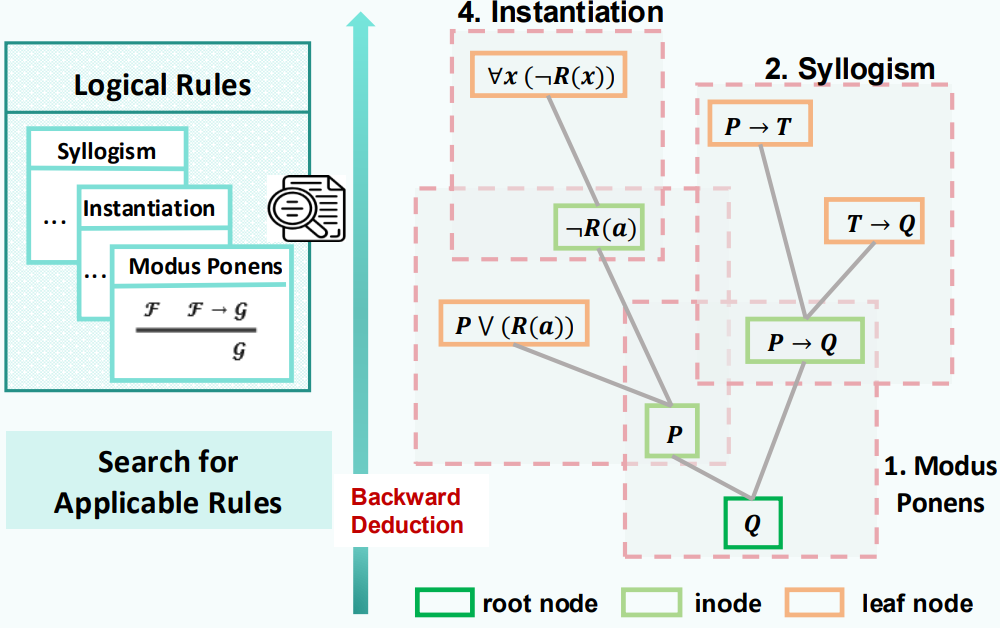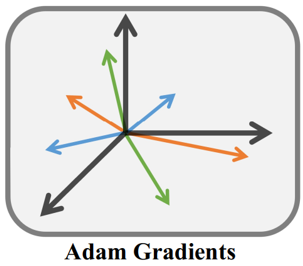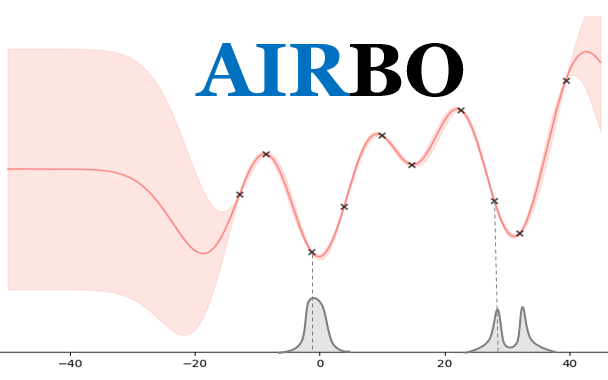About Me
I’m currently a Senior Researcher at Noah’s Ark Lab, Huawei, where I lead research on advancing the capabilities of large language models (LLMs). My primary research focus centers on improving the complex reasoning capability of LLMs, with particular interests in:
- Efficient Post-Training of Foundation Models: Developing novel methods to enhance model performance through efficient RL techniques
- Data Synthesis: Creating high-quality synthetic training data to improve model generalization and reasoning abilities
- Large-small model Co-Reasoning: Exploring innovative collaboration btw small and large LLMs in complex reasoning tasks.
- Learn to optimize: Combining blackbox optimization with Bayesian optimization/reinforcement learning to solve real-world optimization problems.
Education
Ph.D. in Computer Science and Technology, Hong Kong University of Science and Technology (HKUST), June 2017
B.S. in Computer Science, South China University of Technology (SCUT), June 2008
News
- Fri Jan 30 2026 08:00:00 GMT+0800 (GMT+08:00)We have 3 papers accepted in ICLR 2026!
- Wed Jan 15 2025 08:00:00 GMT+0800 (GMT+08:00)Our paper LogicTree was accepted to NeurIPS 2025 as spotlight!
- Wed Nov 20 2024 08:00:00 GMT+0800 (GMT+08:00)New paper on multi-domain fine-tuning accepted to ICML 2025.
Selected Researches

LogicTree
Improving Complex Reasoning of LLMs via Instantiated Multi-step Synthetic Logical Data
NeurIPS 2025 (Spotlight)
EVIC
Boosting Multi-Domain Fine-Tuning of Large Language Models through Evolving Interactions between Samples
ICML 2025
AIRBO
Efficient Robust Bayesian Optimization for Arbitrary Uncertain inputs
NeurIPS 2023Publications
- Zehao Wang, Lin Yang, Jie Wang, Kehan Wang, Hanzhu Chen, Bin Wang, Jianye Hao, Defu Lian, Bin Li, Enhong Chen. “LogicTree: Improving Complex Reasoning of LLMs via Instantiated Multi-step Synthetic Logical Data.” NeurIPS 2025 spotlight.
- Xize Liang, Lin Yang, Jie Wang, Yiyang Lu, Runyu Wu, Hanzhu Chen, Jianye Hao. “Boosting Multi-Domain Fine-Tuning of Large Language Models through Evolving Interactions between Samples”, ICML 2025.
- Junyu Lu, Rongzhong Lian, Di Jiang, Yuanfeng Song, Zhiyang Su, Victor Junqiu Wei, Lin Yang. “Pretraining enhanced RNN transducer.” CAAI 2024.
- Zhenyi Lin, Lin Yang, Yi Gong, Kaibin Huang. “Semantic-Topology Preserving Quantization of Word Embeddings for Human-to-Machine Communications.” IEEE Trans. on Communications 2024.
- Qunsong Zeng, Zhanwei Wang, You Zhou, Hai Wu, Lin Yang, Kaibin Huang。 “Knowledge-based ultra-low-latency semantic communications for robotic edge intelligence.” IEEE Trans. on Communications 2024.
- Lin Yang, Junlong Lyu, Wenlong Lyu, Zhitang Chen. “Efficient Robust Bayesian Optimization for Arbitrary Uncertain inputs.” NeurIPS 2023
- Kaibin Huang, Qiao Lan, Zhiyan Liu, Lin Yang. “Semantic data sourcing for 6g edge intelligence.” IEEE Comm. Magazine 2023 [paper]
- Lin Yang, Min Cheng, Jun Qu, Zhitang Chen, “GraphHO: A Graph-based Handover Optimization System for Cellular Networks”. IEEE ISWCS 2022. [paper]
- Antoine Grosnit, Rasul Tutunov, Alexandre Max Maraval, Ryan-Rhys Griffiths, Alexander I. Cowen-Rivers, Lin Yang, Lin Zhu, Wenlong Lyu, Zhitang Chen, Jun Wang, Jan Peters, Haitham Bou-Ammar, “High-Dimensional Bayesian Optimisation with Variational Autoencoders and Deep Metric Learning.” Arxiv 2022 [paper]
- Lin Yang, Zeyu Wang, Wei Wang, and Qian Zhang, “NALoc: Nonlinear Ambient-Light-Sensor-based Localization System”. ACM Ubicomp 2018. [paper]
- Lin Yang, Wei Wang, Zeyu Wang, and Qian Zhang. “Rainbow: Preventing Mobile-Camera-based Piracy in the Physical World.” IEEE INFOCOM 2018.[paper]
- Wei Wang, Lin Yang, Qian Zhang, and Tao Jiang. “Configurations and Diagnosis for Ultra-Dense Heterogeneous Networks: From Empirical Measurements to Technical Solutions.” IEEE Network 32, no. 3 (2018): 138-145.
- Chenyu Huang, Huangxun Chen, Lin Yang, and Qian Zhang. “BreathLive: Liveness Detection for Heart Sound Authentication with Deep Breathing.” Proceedings of the ACM on Interactive, Mobile, Wearable and Ubiquitous Technologies 2, no. 1 (2018): 12.
- Wei Wang, Lin Yang, and Qian Zhang. “Resonance-based Secure Pairing for Wearables.” IEEE Transactions on Mobile Computing (2018).
- Wei Wang, Shiyue He, Lin Yang, Qian Zhang, and Tao Jiang. “Wi-Fi Teeter-Totter: Overclocking OFDM for Internet of Things.” IEEE INFOCOM 2018.
- Lin Yang, Mingxuan Yuan, Yanjiao Chen, Wei Wang, Qian Zhang, and Jia Zeng. “Personalized user engagement modeling for mobile videos.” Computer Networks 126 (2017): 256-267.[paper]
- Wei Wang, Yingjie Chen, Lin Yang, and Qian Zhang. “Detecting on-body devices through creeping wave propagation.” In INFOCOM 2017-IEEE Conference on Computer Communications, IEEE, pp. 1-9. IEEE, 2017.
- Lin Yang, Wei Wang, Qian Zhang. “Secret from Muscle: Enabling Secure Pairing with Electromyography.” ACM SenSys, Stanford, USA, Nov. 2016. Acceptance Rate: 17.65% (21 out of 119)[paper]
- Lin Yang, Wei Wang, Qian Zhang. “VibID: User Identification through Bio-Vibrometry.” ACM/IEEE IPSN, Vienna, Austria, Apr. 2016. Acceptance Rate: 19.65% (23 out of 117)[paper]
- Wei Wang, Lin Yang, Qian Zhang. “Touch-And-Guard: Secure Pairing Through Hand Resonance.” ACM UbiComp, Heidelberg, Germany, Sep. 2016. Acceptance Rate: 17.21% (21 out of 122)[paper]
- Lin Yang, Mingxuan Yuan, Wei Wang, Qian Zhang, Jia Zeng. “Apps on the Move: A Fine-Grained Analysis of Usage Behavior of Mobile Apps.” IEEE INFOCOM, San Francisco, USA, Apr. 2016. Acceptance Rate: 18.25% (300 out of 1644)[paper]
- Jiansong Zhang, Jin Zhang, Kun Tan, Lin Yang, Qian Zhang, and Yongguang Zhang. “Turning Waste into Wealth: Enabling Communication in Guardband Whitespace.” ACM MobiHoc, Hangzhou, China, June. 2015. Acceptance Rate: 14.8% (37 out of 250)
- Lin Yang, Jin Zhang, and Qian Zhang. “PESC: A parallel system for clustering ECG streams based on MapReduce.” IEEE GlobeCom, Atlanta, USA, Dec. 2013.[paper]
For a complete list, please visit my Google Scholar profile.